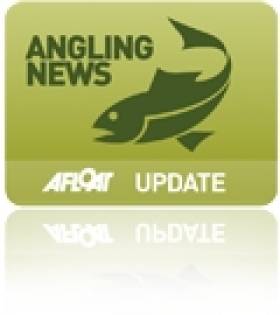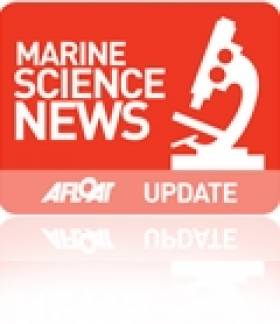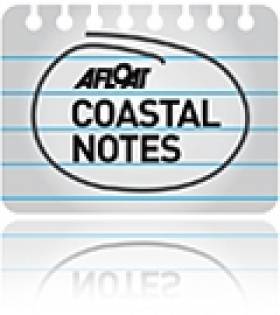Displaying items by tag: Brussels
UK Anglers Cry Foul Over Proposals For Sea Bass Catch
#Angling - Sea anglers in the UK fear being restricted to catching just one sea bass a day under Brussels-led measures to combat decline of the species.
According to the UK's Independent, the European Commission says evidence compiled by scientists recommends and 80% reduction in sea bass fishing across Europe.
The drastic cut proposed for 2015 comes after a sharp but unsustainable rise in the species' popularity among both recreational anglers and restaurateurs.
But the plans have been described as "grossly disproportionate" by the UK's Angling Trust, which also disputes claims from Brussels that anglers account for a third of the total sea bass catch.
The Independent has much more on the story HERE.
Fish Discards Should End 'Within Six Years' Says Coveney
#CFP - The deal reached between EU fisheries ministers this morning on reform of the Common Fisheries Policy (CFP) should bring an end to the practice of fish discards within the next six years, according to Ireland's Marine Minister.
As reported earlier today on Afloat.ie, Minister Simon Coveney emerged from 36 hours of talks in Brussels confident that a far-reaching reform on fisheries policy had been reached.
RTÉ News reports that the compromise deal will see a 93% ban on discards take immediate effect, phasing towards a full ban by 2019, with special allowances made in certain cases where sustainability of fish stocks allows.
Minister Coveney, as president of the EU Council of Fisheries Ministers during Ireland's EU presidency, will submit the agreed reforms to the European Parliament - which has previously been steadfast in its demands for a complete ban on fish discards to halt the depletion of fish stocks in European waters.
As previously reported on Afloat.ie, this week's discussions on fisheries reform in Brussels have been described as a "once-in-a-decade opportunity" to end the wasteful practice of fish discards, which has seen as much as 50% of the catch in the North Sea is thrown back overboard dead.
'Longest River' Hailed A Success In Brussels
#MarineScience - A unique audio-visual performance intended to communicate the importance of marine science and research has been praised at a showcase event in Brussels.
The Marine Institute has collaborated with Galway-based choir Cois Cladaigh on The Longest River, in which a selection of Latin and English choral music and traditional Irish pieces from the 9th century onwards are put to a photo slideshow depicting marine scenes and species, and video footage of extreme environment under the deep ocean.
According to the Marine Institute: "The unique collaboration has created an innovative means of engaging new audiences and raising the awareness of the science of our oceans and the importance of the deep seas that support our life on earth."
As previously reported on Afloat.ie, EU Fisheries Commissioner Maria Damanaki - a co-patron of the initiative - said The Longest River "demonstrates the importance of international collaborations on ocean research".
The marine science literacy and communication event, described as "an arts, music and science fusion", was presented to an audience of over 200 people as part of the celebration of Ireland’s Presidency of the Council of European Union at Eglise du Saint – Sacrement in Brussels.
The Longest River was also presented to over 100 primary school pupils at the Ecole Europeenne de Brussels IV in the Belgian capital. The children were introduced to Irish musicians Eugene Lambe and Kathleen Loughnane who spoke about the history of their instruments and played the Uillean pipe and Irish harp.
Dr Brendan O’Connor, director of Cois Cladaigh, also taught the pupils how to perform the Rondes by Folke Rabe, a contemporary performance extending the expression of vocal sounds that cannot be found in any language, yet are possible sounds inspired from deep within the ocean.
Supporting the Marine Institute and the development of The Longest River, Dr O’Connor said: “This event has enabled Cois Cladaigh to raise its profile amongst a wider audience as well as contribute to the ethos of evoking innovative arts and science literacy, offering better communication to a broad societal audience."
Brussels Wants Answers From State Over Seismic Surveys
#SeismicSurvey - The Irish Times reports that the European Commission has demanded an explanation from the State regarding the absence of environmental impact assessments for seismic surveys off the west coast.
The action comes following a complaint lodged in Brussels by the Irish Whale and Dolphin Group (IWDG) in the wake of the recommencing of seismic surveys over the Corrib gas field last month.
As Irish waters are a designated whale and dolphin sanctuary, the IWDG's position is that the State must comply with the EU directive to conduct an environmental impact assessment when licensing such ocean-bound surveys.
The group says it received word from the EC that the issue has been raised with the Department of Energy, and reiterated the need for "strict protection" of cetaceans in Irish and all EU waters.
Last December the IWDG expressed concerns over the potential impact of a 2D seismic survey on harbour porpoises in the Kish Bank Basin in Dublin Bay.
As previously reported on Afloat.ie, Providence Resources subsequently suspended its licence to explore for oil and gas at what was termed the Dalkey Island Prospect.
The Irish Times has more on the story HERE.
Important Fisheries Talks Continue in Brussels
#Fishing - Important talks on EU fisheries reform are continuing in Brussels after progress in Clonakilty recently, according to RTÉ News.
As previously reported on Afloat.ie, Marine Minister Simon Coveney welcomed a deal signed on Friday 18 January between the EU and Norway on allowable catches and quotas.
The agreement was seen as a positive move at the end of a week of talks at the National Seafood Centre, which followed a number of false starts due to difficulties in balancing mutual access and management arrangements.
Minister Coveney said that meetings taking place in Brussels today (28 January) are "about setting the scene for six months of intensive work" to produce dossiers for both the Common Fisheries Policy and the Common Agricultural Policy, for which he hopes definitive reforms can be achieved by this summer.
Both the CFP and CAP account for 40% of the European Union budget.
Make or Break Time for Fish Discards Ban
#FISHING - The Guardian reports that an alliance of EU member states plans to "hijack" a council meeting of the union's fisheries ministers today to prevent a ban on fish discards.
EU maritime affairs commissioner Maria Damanaki has stated her commitment to ending the practice, describing it as “unethical, a waste of natural resources and a waste of fishermen’s effort.”
Half of all fish in the North Sea - and up to two-thirds in other areas - are thrown back under the quota system implemented under the EU's common fisheries policy. The practice was recently highlighted by TV chef Hugh Fearnley-Whittingstall's 'Fish Fight' campaign.
Minister for the Marine Simon Coveney has called on EU states to support Ireland's effort to deal with fish discards, as previously reported on Afloat.ie.
But some member states, led by France and Spain, have dismissed the proposed ban as "unrealistic" and "too prescriptive", and will attempt to pass a declaration to allow the practice to continue indefinitely.
According to the Guardian, the charge is being led by industrial-scale fishing enterprises who want to retain the permission to discard lower value fish in order to maximise profits.
Brussels insiders say that if the declaration were to pass it would "kill the reform".





























































